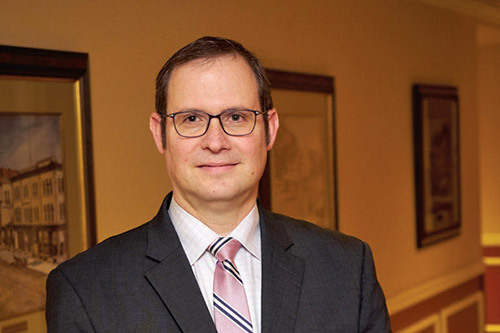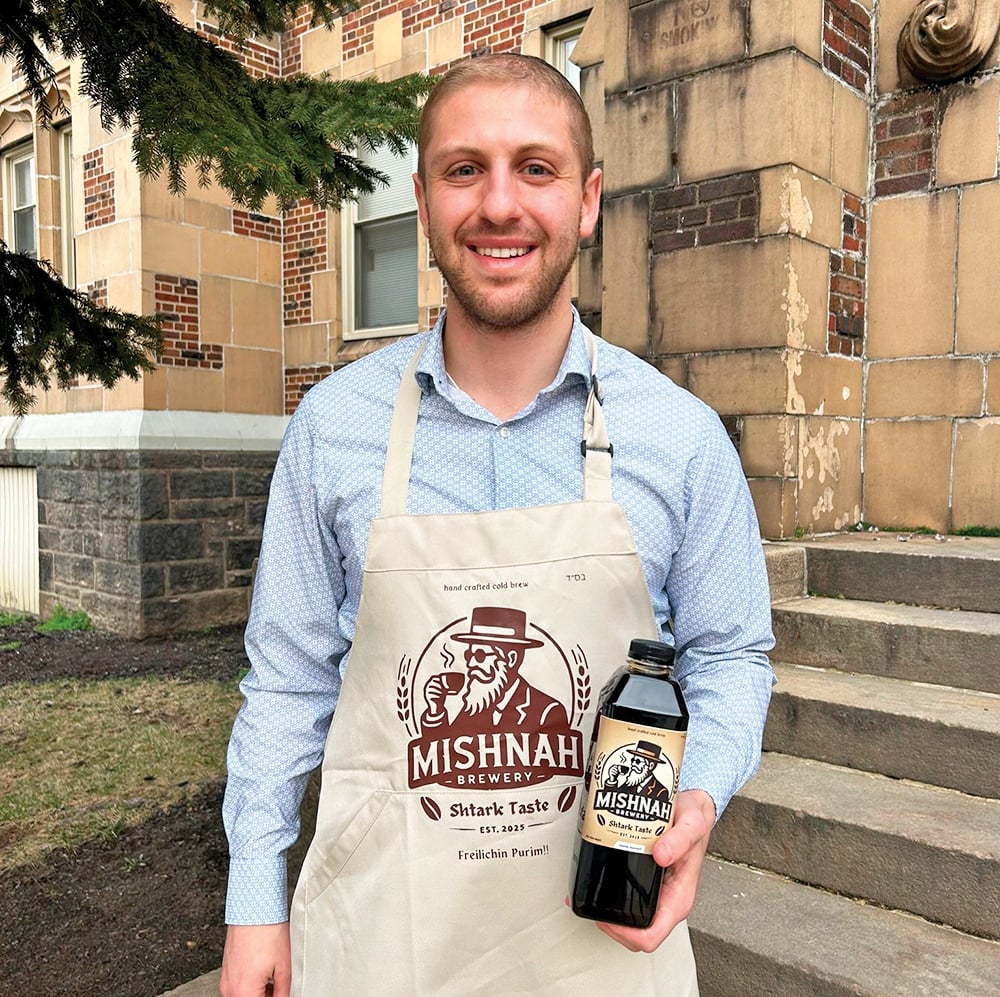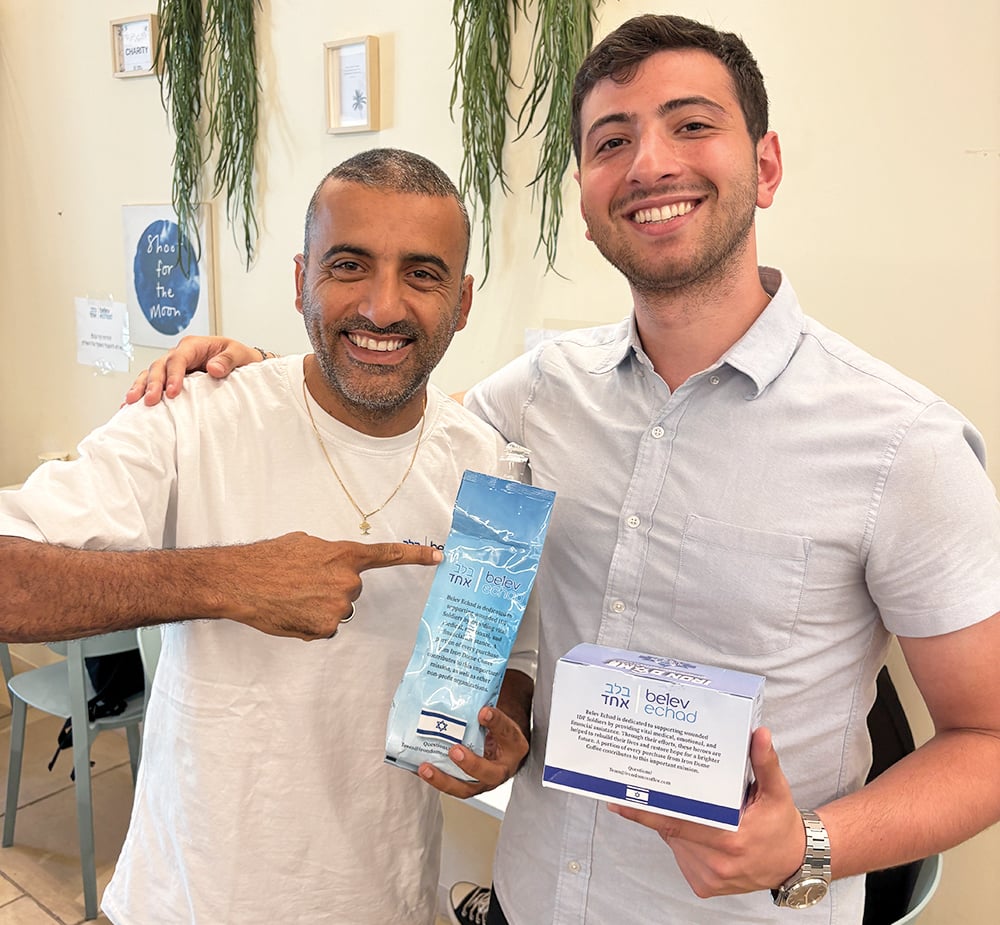
(Courtesy of YU) Dr. Shay Pilnik has been hired as the premier director of the newly founded Emil A. and Jenny Fish Center for Holocaust and Genocide Studies at Yeshiva University. He began his tenure in February 2020.
Before coming to the Fish Center, Dr. Pilnik headed the Nathan & Esther Pelz Holocaust Education Resource Center for over five years. At a time when Holocaust survivors are fewer and fewer, the Pelz Center he led doubled the number of students and adults engaged in its programming and expanded both its geographic outreach (to include large parts of the state of Wisconsin) and development capacity.
Under his leadership, the Pelz Center attracted dozens of new volunteers, donors and partnering organizations, helping to highlight the grave need to bring “Never Again” to as many schools, classrooms, libraries, religious institutions and community organizations as possible.
The son and grandson of immigrants to Israel from the USSR, Dr. Pilnik is an Israeli and U.S. citizen.
Dr. Pilnik earned his bachelor’s degree from the Hebrew University of Jerusalem, majoring in Comparative Literature and Jewish Thought; an MA in Jewish Studies from McGill University; and a doctoral degree from the Jewish Theological Seminary in Modern Jewish Studies, which he earned in 2013. His PhD dissertation dealt with the commemoration of the Babi Yar Massacre in Soviet Russian and Yiddish literature. From 2008-2014, he was an adjunct instructor at the Universities of Wisconsin-Milwaukee and Oshkosh lecturing on a variety of topics, including the Holocaust, modern Jewish history and culture, Judaism, Hebrew Bible and the religions of the world.
“At a time rife with hate and intolerance,” said Dr. Pilnik, “when anti-Semitic incidents make news headlines in our country and around the world, teaching the lessons of the Holocaust to the next generation is one of the most important educational tasks of our time.”
Emil Fish, a Holocaust survivor and the generous benefactor who has made the Fish Center possible, believes that it is important to provide educators with the resources and programs needed to impart the relevancy of the Holocaust to a new generation of students who know less and less about this catastrophic period in contemporary history. By doing so, the Fish Center will play an integral role in the Jewish future by promoting a deeper understanding of the past.
“After we survivors are gone, all that will be left are monuments, museums and books. To make sure ‘Never Again’ is really never again, we need to remain committed to educating the world about what happened—and in order to educate the world, we need educators. Yeshiva University, as the most respected Jewish educational institution in America, is well positioned to lead the way.”
The ultimate purpose of the Fish Center is to apply the lessons learned from the Holocaust and other genocides to combat prejudices, hateful ideologies and future atrocities.
“At a moment when Holocaust education and awareness across the globe is transitioning from a pedagogy of living testimony to one anchored in memory, the Fish Center—established through the visionary generosity of Emil and Jenny Fish—will serve a crucial role as a leader and role model for a new generation of Holocaust scholarship and education,” said Dr. Ari Berman, President of Yeshiva University.
The Fish Center’s consequential mission will be to train both school and university educators in the field of Holocaust and Genocide Studies, with plans to offer academic programs in the discipline, incorporating history, Jewish studies, literature, law, philosophy and social work.
Dr. Selma Botman, provost and vice president for academic affairs, will oversee Fish Center-related activities, and Dr. Danielle Wozniak, Dorothy and David I. Schachne Dean of the Wurzweiler School of Social Work, will supervise any related academic programs that the university will propose.
“There has never been a more important time to have a Center for Holocaust and Genocide Studies,” said Dr. Wozniak. “Educating this generation and those to come about the atrocities of the Holocaust is one of our best tools for fighting hatred and prejudice. I look forward to the Center’s success and to the transformations it will bring about.”
By leveraging the uniquely qualified faculty and resources of Yeshiva University’s undergraduate, graduate and professional schools and affiliates, the Center will serve as an impactful and essential focus of research, education, teacher training and public programming around the Holocaust and genocide studies, extending Holocaust education to people of all ages and backgrounds.
Dr. Botman said, “We thank Emil Fish for recognizing our celebrated faculty and our highly experienced staff and for partnering with our entire academic community on this significant and timely initiative. Our University looks forward to Dr. Pilnik bringing his skills and experience to YU and leading this effort to success.”














